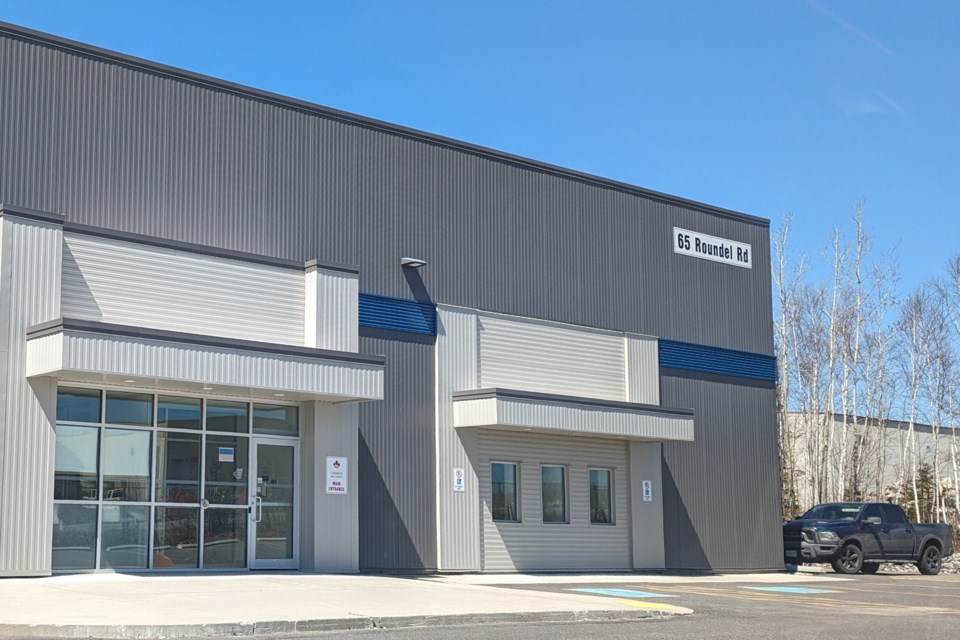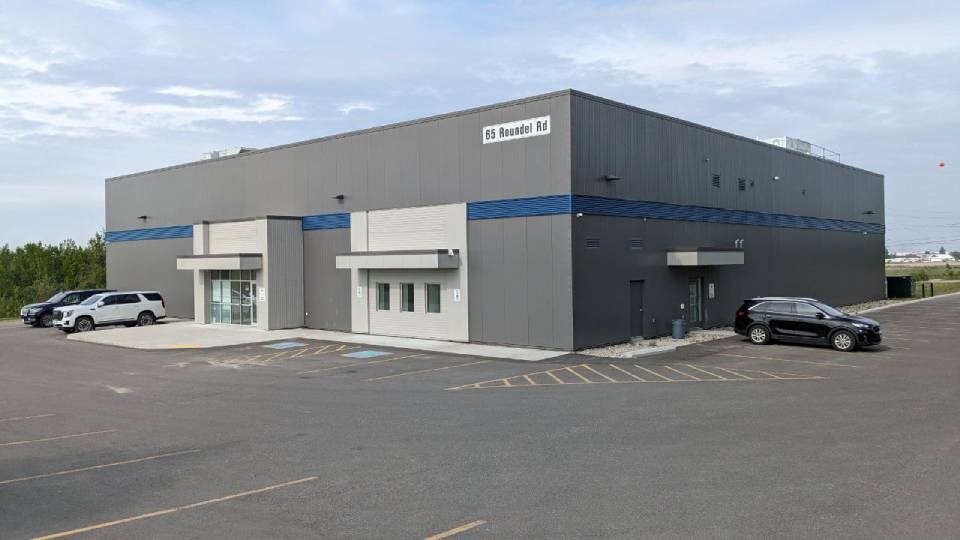Business at a North Bay meat-processing facility is continuing as usual, according to its owner, even while the property and facility has been listed for sale with a price tag of $15.2 million.
Oleksandr Zahrebelnyi, the president and founder of Canada Meat Group, said the facility at 65 Roundel Road in the industrial park at Jack Garland Airport is still operational and producing product, despite being listed on Realtor.ca nearly two weeks ago.
"We are working very efficiently; we have a lot of production and everything's going well," Zahrebelnyi said. "We're just looking for additional opportunity and we are looking for maybe some growth in the business sense."
Zahrebelnyi said seeking out other companies to co-operate with was a suggestion they received on how they could expand Canada Meat Group’s reach.
“There is nothing bad happening here. We are still working, operating,” he said. “It’s not like we are selling the business because of something — no. Definitely not.”
Canada Meat Group launched in 2020 as a producer of beef, Kosher, and halal beef products for domestic and international sale, using animals sourced from producers in Ontario, Quebec, Manitoba, Saskatchewan, and Alberta.
Zahrebelnyi, whose family owns and operates a similar business in his home country of Ukraine, was looking to expand globally and found a welcoming opportunity in North Bay.

Invest North Bay, the city’s economic development arm, worked closely with Zahrebelnyi over a two-year period to bring the company to the city, and the proposal was bolstered by provincial and federal funding.
That includes $2.4 million in 2019, which comprised a $1-million repayable loan from FedNor and an additional $1.4 million from the province. The company received an additional $150,000 from the federal-provincial Canadian Agricultural Partnership toward the purchase of new equipment in 2021.
Ground broke on the facility in 2018, and Canada Meat Group became operational two years later, producing products under a number of different brand names, including Near North Meats.
The company had even briefly collaborated with Canadore College on developing a new meat cutters course to train people for the facility.
But activity around the property seemed to have slowed in recent weeks, with the facility being listed for sale on or about April 19.
Listed by the Mississauga brokerage Indusite Realty Corporation, the sale includes the 15,360-square-foot meat-processing and cold storage facility, which is certified first class by the Canadian Food Inspection Agency, and 3.44 acres of land zoned M-2 and Mag G for industrial use.
According to the marketing materials for the listing, the property is being promoted as an industrial site with building opportunities, with processing equipment available.
Prospective buyers are advised they have to sign a non-disclosure agreement to access additional information.
On a recent visit to the property, five cars were parked near the employee entrance, but there was no activity in the lot itself.
The door remained locked to the public and knocks at the door went unanswered.
As of Tuesday, the Canada Meat Group website was inaccessible, while the company’s social media sites had not been updated since last summer.
Despite this, Zahrebelnyi said the company is still a going concern, although it’s had to make adjustments to its business model in order to thrive.
Right now, Canada Meat Group is focused on producing what are called “case-ready” products, or meat products that are processed and packaged at the facility, and then delivered to customers ready to be put directly into the meat case.
Zahrebelnyi said that includes ground beef, along with value-added products such as grass-fed burgers and organic burgers, all of which is halal, or meat that is prepared in alignment with Muslim beliefs on consumption.
“Most of our production right now is private label, co-pack,” Zahrebelnyi said, referring to the practice of making a product for a customer, which then sells it under their own name.

In order to offer more services, he added, the company needs more business in its day-to-day operations.
Two years ago, the company said it was considering opening a 50,000-square-foot abattoir with an eye to sourcing its beef from Northern Ontario producers. That facility would have processed up to 200 head per day, two to five days a week, of beef, veal and lamb, with the potential for custom slaughtering and processing services.
Company officials estimated up to 150 jobs would be created to operate the facility.
But Zahrebelnyi said because of high beef prices, that plan is off the table.
“That's what we see — just everything's more expensive and we would never be competitive here compared to big producers down south,” he said. “This is the reason; we can't compete.”
But the company is continuing to open new markets, including recently getting certified to sell to customers in Japan, Zahrebelnyi said.
“Many good things (are) happening here. We just need the growth.”




